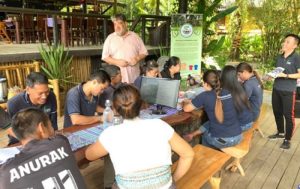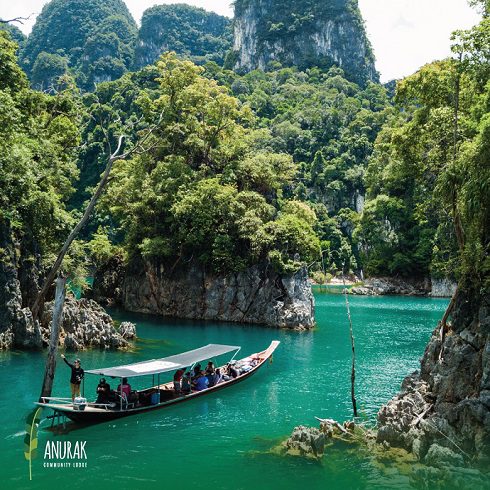 Dr. Scott Michael Smith has released groundbreaking research that magnificently positions Anurak Community Lodge as a paragon for responsible tourism in a decisive move that could redefine the future of tourism. His findings, published in the revered Journal of Environmental Tourism and Management—a Scopus-listed publication—provide an unassailable framework for balancing profitability with social and environmental sustainability.
Dr. Scott Michael Smith has released groundbreaking research that magnificently positions Anurak Community Lodge as a paragon for responsible tourism in a decisive move that could redefine the future of tourism. His findings, published in the revered Journal of Environmental Tourism and Management—a Scopus-listed publication—provide an unassailable framework for balancing profitability with social and environmental sustainability.
The timely study arrives amid a pandemic-hit global economy, where tourism has been one of the most brutal hit. According to World Travel & Tourism Council data, the worldwide travel and tourism sector suffered a nearly $4.5 trillion loss in 2020 due to the pandemic. Against this grim backdrop, Dr Smith, a leading authority in tourism management, offers a lifeboat of wisdom.
His research meticulously merges field studies, in-depth interviews, and guest surveys at Anurak Community Lodge, situated in the lush rainforests of southern Thailand. The Lodge and its parent company, YAANA Ventures, emerge as emblems of how businesses can engage in responsible tourism that benefits local communities and global ecosystems.
“The need to champion responsible tourism has never been more acute. The sector needs to strategize for economic resilience through responsible practices,” says Dr Smith, an esteemed academic at Assumption University—the first international university in Thailand. His recent paper profoundly delves into the three pillars of responsible tourism: economic, social, and environmental sustainability. He argues that only a balanced approach will pave the way for a resilient, profitable, and sustainable tourism industry.
Smith’s insights come at a pivotal moment. His assertion that the industry-wide pause, brought on by the pandemic, can be transformed into a strategic pit stop for reassessing priorities and fortifying responsible tourism strategies resonates with increasing urgency. “The current global situation is a call to action for all tourism stakeholders to prioritize responsible practices and forge a path towards economic resilience,” he expounded in an excerpt from his research.
Last year, Dr. Smith enlightened students at Pennsylvania State University-Berks through a case study based on another seminal work of his, “Asian Oasis—Mythical Journeys in the Hill Tribe Villages of Northern Thailand,” an educational staple in institutions worldwide. The paper was published in the International Council on Hotel, Restaurant, and Institutional Education’s (ICHRIE) Journal of Hospitality & Tourism Cases (JHTC).
The veracity of Dr Smith’s work is further validated by his collaboration on Planet Happiness, a groundbreaking initiative to guide tourism away from overtourism and towards destination happiness, well-being, and sustainability.
The findings of Dr. Smith’s latest research aren’t just academic exercises; they offer a roadmap for tourism operators committed to responsible practices and policymakers searching for sustainable solutions. In a world grappling with the COVID-19 crisis, his timely research serves as a lantern in the fog, guiding the way to a tourism industry that can be both profitable and humane. With decades of experience and a Ph.D. in Tourism Management, Smith’s words aren’t merely academic but a call to action. And if this study is any indication, the future of tourism might be a lot brighter and more responsible than we ever imagined.
Written by: Kanda Limw

